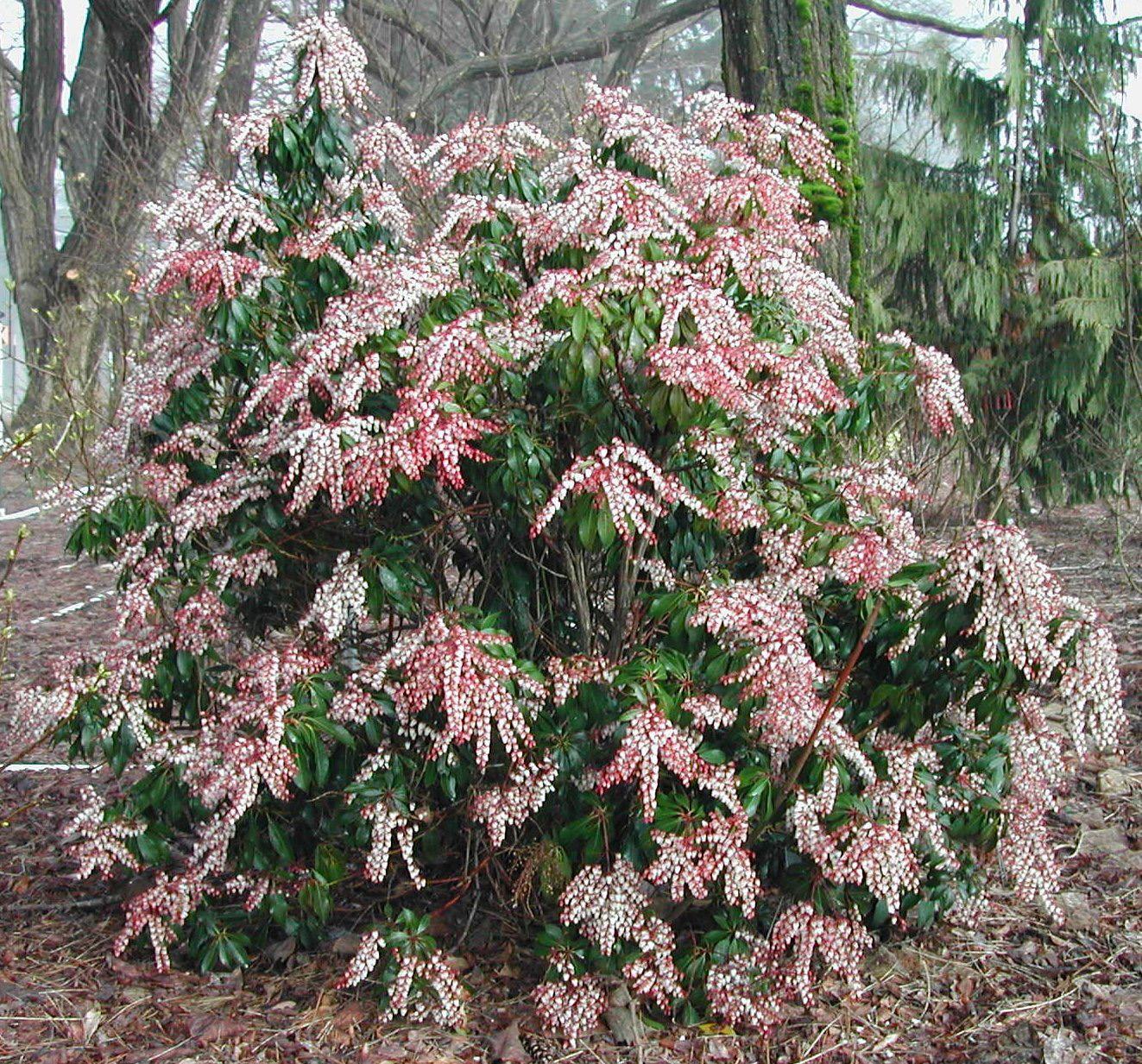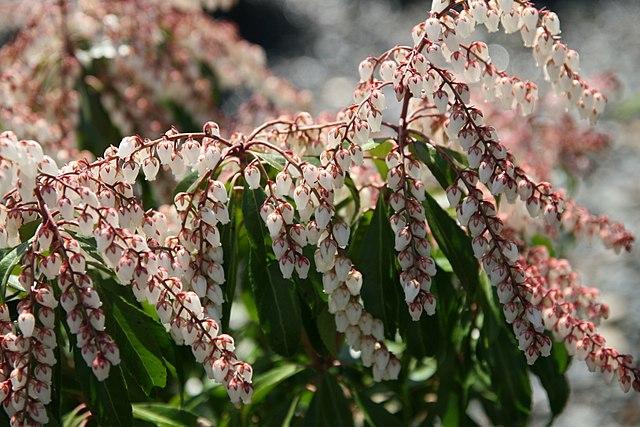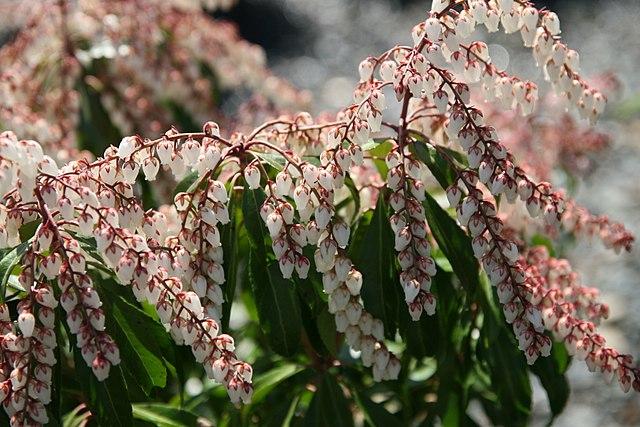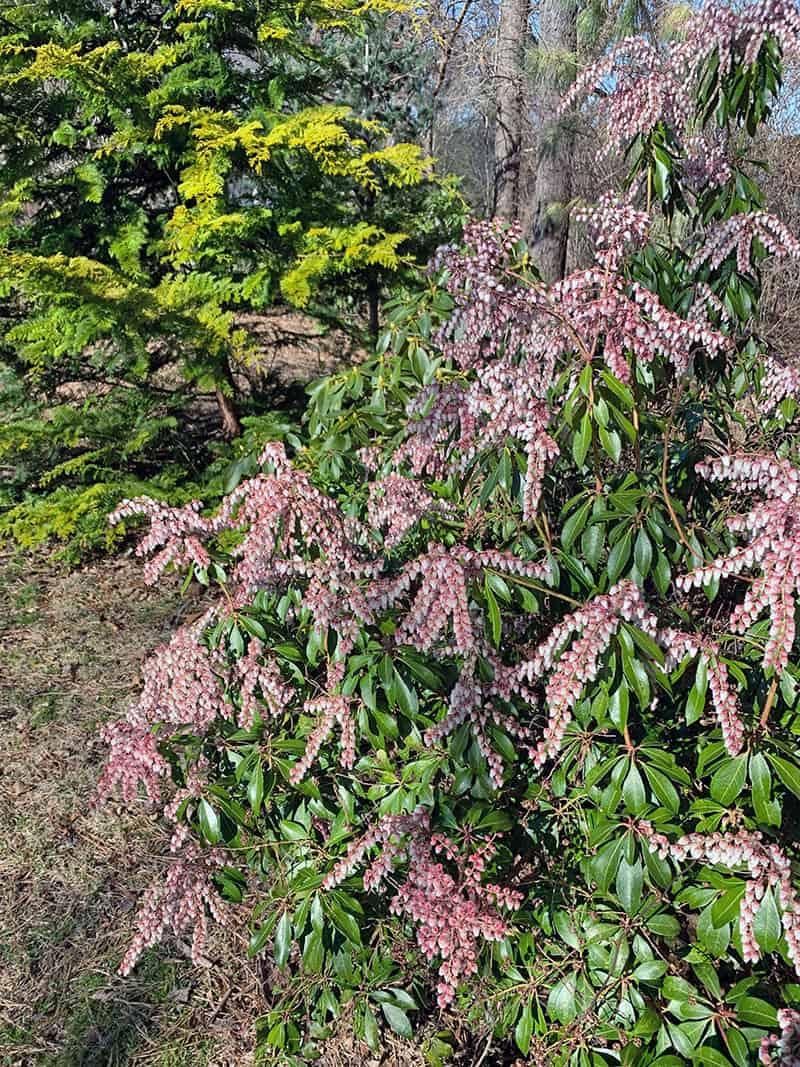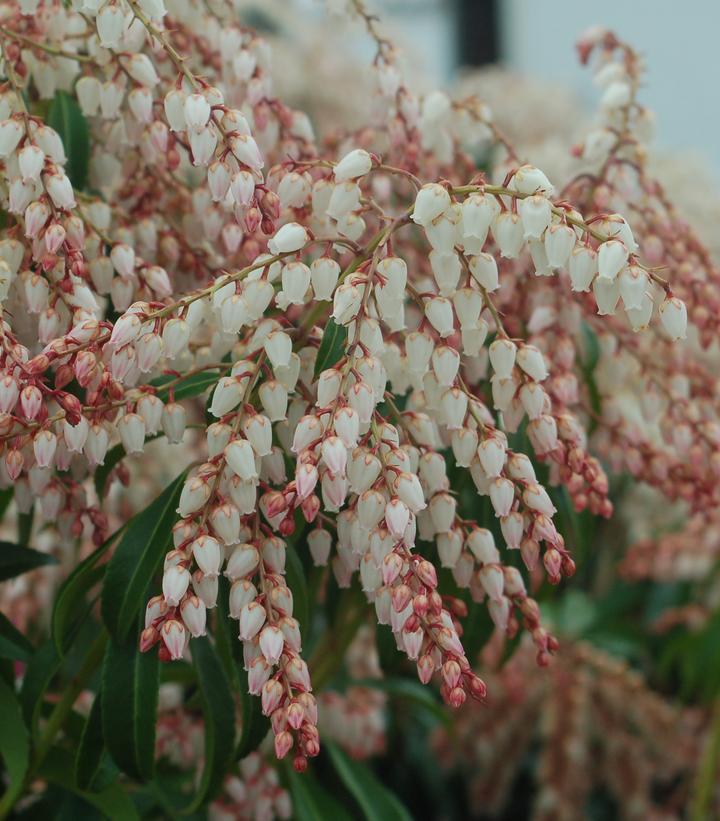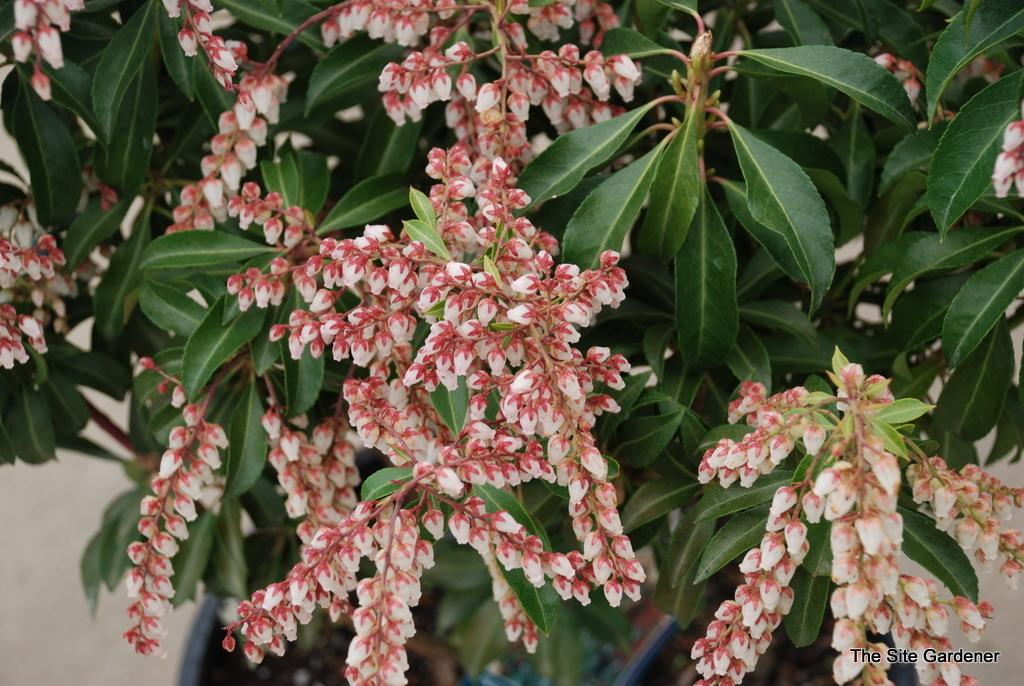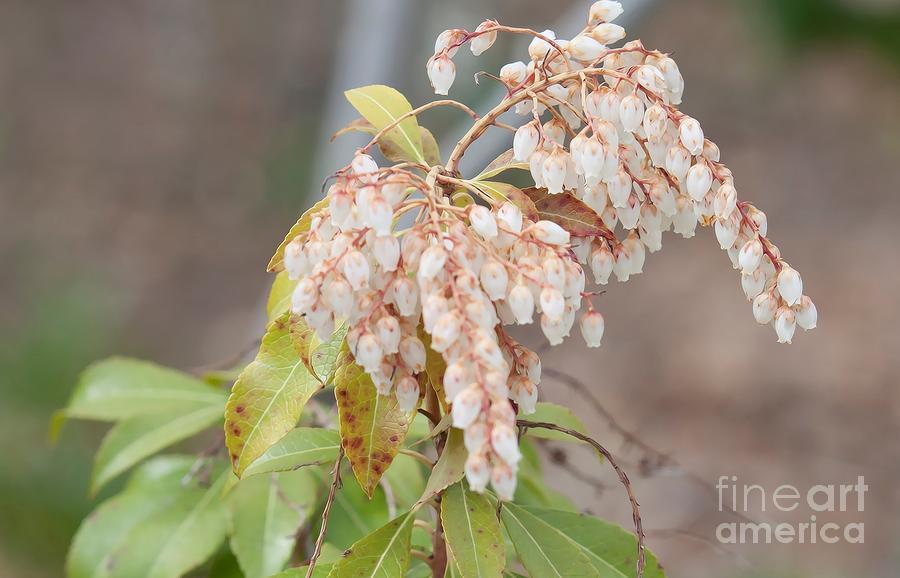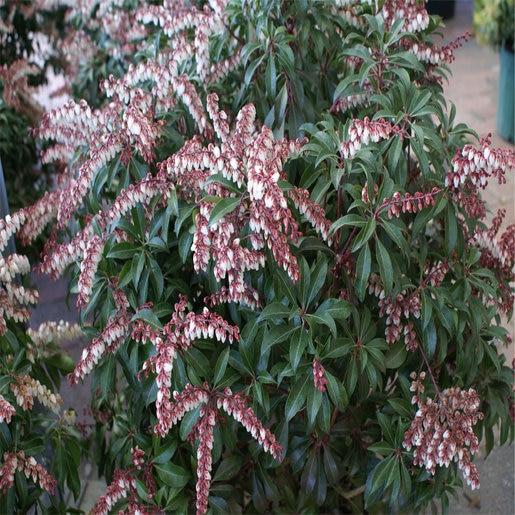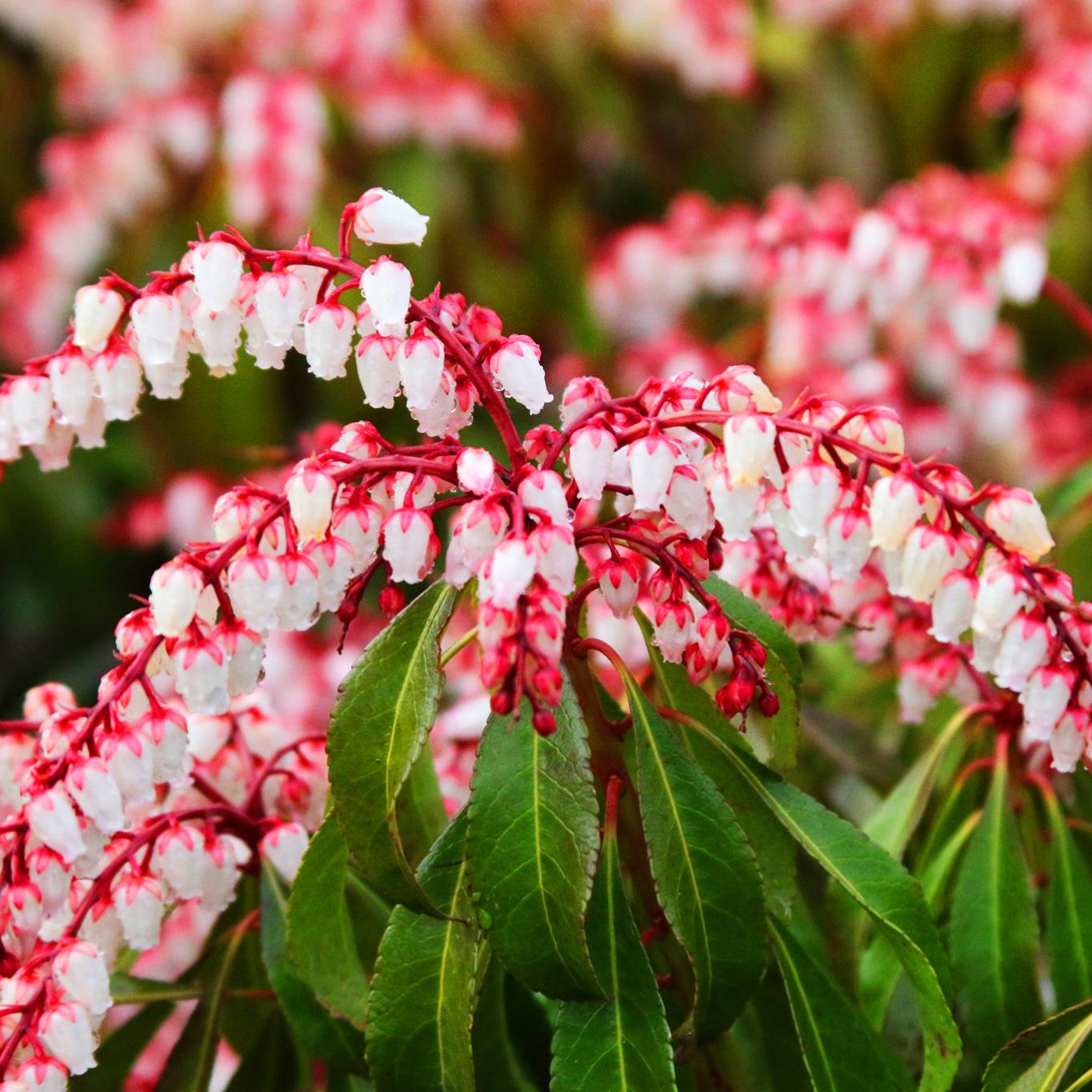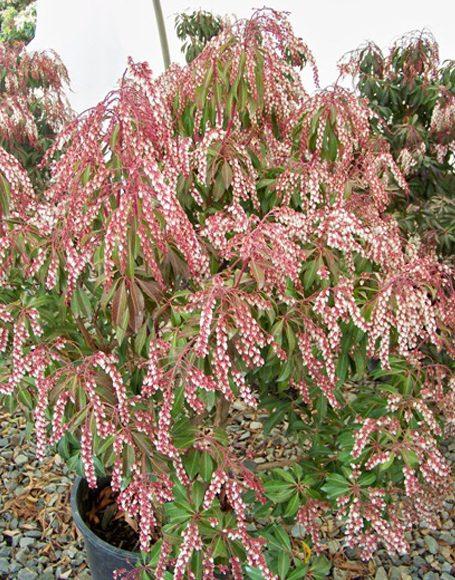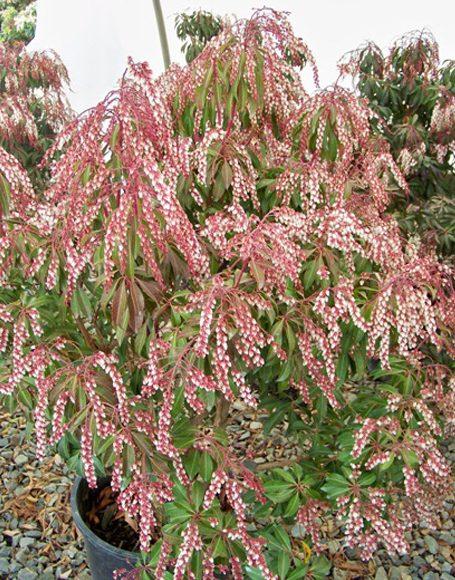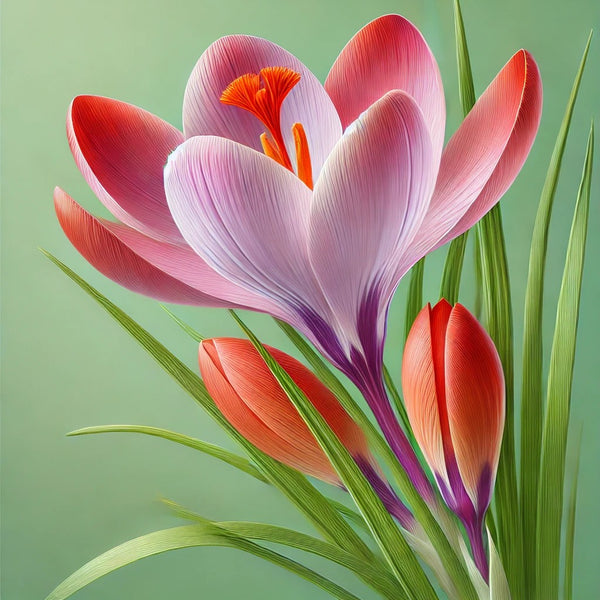1
/
of
20
RedCrocus Dorothy Wycoff Japanese Andromeda-Evergreen Shrub for Shaded Gardens 5 Gallon
RedCrocus Dorothy Wycoff Japanese Andromeda-Evergreen Shrub for Shaded Gardens 5 Gallon
Regular price
$240.00 USD
Regular price
$312.00 USD
Sale price
$240.00 USD
Unit price
/
per
Shipping calculated at checkout.
SKU:nsf0631-redcrocus
Couldn't load pickup availability
Pieris japonica 'Dorothy Wycoff'
Description
Pieris japonica 'Dorothy Wycoff' is a stunning evergreen shrub known for its striking red new growth that matures to a deep green. In spring, it produces clusters of small, urn-shaped, pinkish-white flowers that add a delicate touch to gardens. This plant is a favorite for its year-round interest and elegant appearance.
Suggested Uses
Ideal for use in woodland gardens, mixed borders, and as a specimen plant. Its compact size makes it suitable for container gardening on patios and decks. It also works well in shaded areas where its vibrant foliage can brighten up the space.
Plant Details
-
 Botanical Name: Pieris japonica 'Dorothy Wycoff'
Botanical Name: Pieris japonica 'Dorothy Wycoff' -
 Common Name: Dorothy Wycoff' Japanese Andromeda
Common Name: Dorothy Wycoff' Japanese Andromeda -
 Size & Growth: 4-6 feet tall and wide
Size & Growth: 4-6 feet tall and wide -
 Hardiness Zones: 5-8
Hardiness Zones: 5-8 -
 Foliage Type: Evergreen
Foliage Type: Evergreen -
 Bloom Time: Early spring
Bloom Time: Early spring -
 Growth Rate: Slow to moderate
Growth Rate: Slow to moderate -
 Light Requirements: Partial shade to full shade
Light Requirements: Partial shade to full shade -
 Attracts Pollinators: Yes, bees and butterflies
Attracts Pollinators: Yes, bees and butterflies -
 Indoor Friendly: No
Indoor Friendly: No -
 Container Friendly: Yes
Container Friendly: Yes -
 Deer Resistant: Yes
Deer Resistant: Yes -
 Pet Warning: Toxic if ingested
Pet Warning: Toxic if ingested -
 Fragrant: No
Fragrant: No -
 Cut Flower: No
Cut Flower: No -
 Grows Well With: Rhododendrons, Azaleas, Ferns
Grows Well With: Rhododendrons, Azaleas, Ferns
Care Tips
-
 Planting Instructions: Plant in well-drained, acidic soil
Planting Instructions: Plant in well-drained, acidic soil -
 Soil Moisture: Keep soil consistently moist, but not waterlogged
Soil Moisture: Keep soil consistently moist, but not waterlogged -
 Soil Type: Acidic, rich in organic matter
Soil Type: Acidic, rich in organic matter -
 Humidity: Prefers moderate to high humidity
Humidity: Prefers moderate to high humidity -
 Pruning Instructions: Prune after flowering to maintain shape
Pruning Instructions: Prune after flowering to maintain shape -
 Winter Care: Mulch to protect roots in colder climates
Winter Care: Mulch to protect roots in colder climates -
 Planting Depth: Plant at the same depth as in the nursery pot
Planting Depth: Plant at the same depth as in the nursery pot -
 Fertilization: Fertilize in early spring with an acid-loving plant fertilizer
Fertilization: Fertilize in early spring with an acid-loving plant fertilizer -
 Special Care: Protect from strong winds and late frosts
Special Care: Protect from strong winds and late frosts
Share
